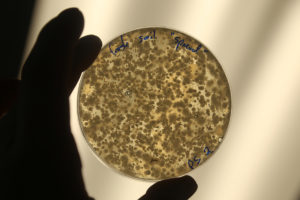By Heather Jennings,
Director, Probiotic Solutions®
 In the last week of August, Probiotic Solutions® hosted a Wastewater Microbiology Course at our headquarters in Gilbert, Arizona. This educational event with Dr. Toni Glymph-Martin, cosponsored by AZ Water Association and Rural Water Association of Arizona (RWAAZ), successfully served its purpose of helping industry professionals learn more about several complex aspects of wastewater. [Read more…]
In the last week of August, Probiotic Solutions® hosted a Wastewater Microbiology Course at our headquarters in Gilbert, Arizona. This educational event with Dr. Toni Glymph-Martin, cosponsored by AZ Water Association and Rural Water Association of Arizona (RWAAZ), successfully served its purpose of helping industry professionals learn more about several complex aspects of wastewater. [Read more…]
 The 2-day in-person course will cover various key topics related to wastewater microbiology including, but not limited to, microscopy, filamentous bacteria, etc. Attendees will also get a chance to participate in various hands-on learning activities for a better understanding. To know more about the course,
The 2-day in-person course will cover various key topics related to wastewater microbiology including, but not limited to, microscopy, filamentous bacteria, etc. Attendees will also get a chance to participate in various hands-on learning activities for a better understanding. To know more about the course,  Most of the work on agricultural applications of humic substances (HS) has focused on their biostimulant effects on plants. Far less work has been conducted on the effects of HS on soil microbial populations. It’s not surprising to learn, from the few studies that have been published, that HS also stimulate the growth of soil bacteria, even the bacteria that inhabit earthworm digestive tracts. One of the most important discoveries is that many species of soil bacteria are able to grow on humic acid (HA) as their sole carbon source (
Most of the work on agricultural applications of humic substances (HS) has focused on their biostimulant effects on plants. Far less work has been conducted on the effects of HS on soil microbial populations. It’s not surprising to learn, from the few studies that have been published, that HS also stimulate the growth of soil bacteria, even the bacteria that inhabit earthworm digestive tracts. One of the most important discoveries is that many species of soil bacteria are able to grow on humic acid (HA) as their sole carbon source (